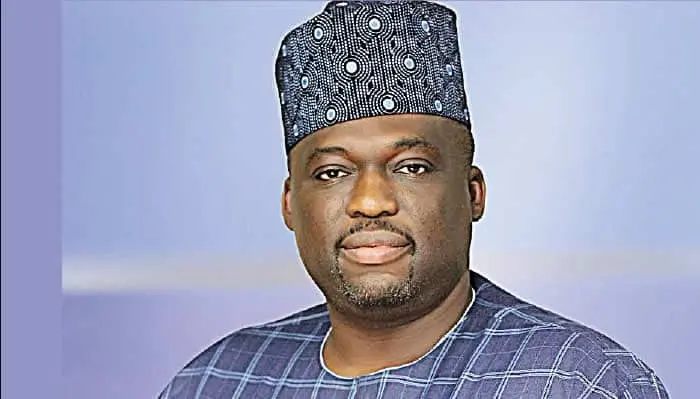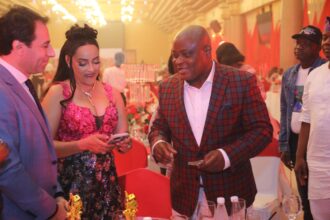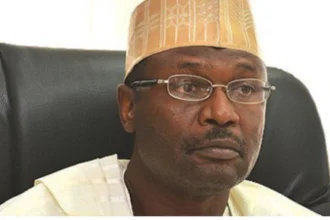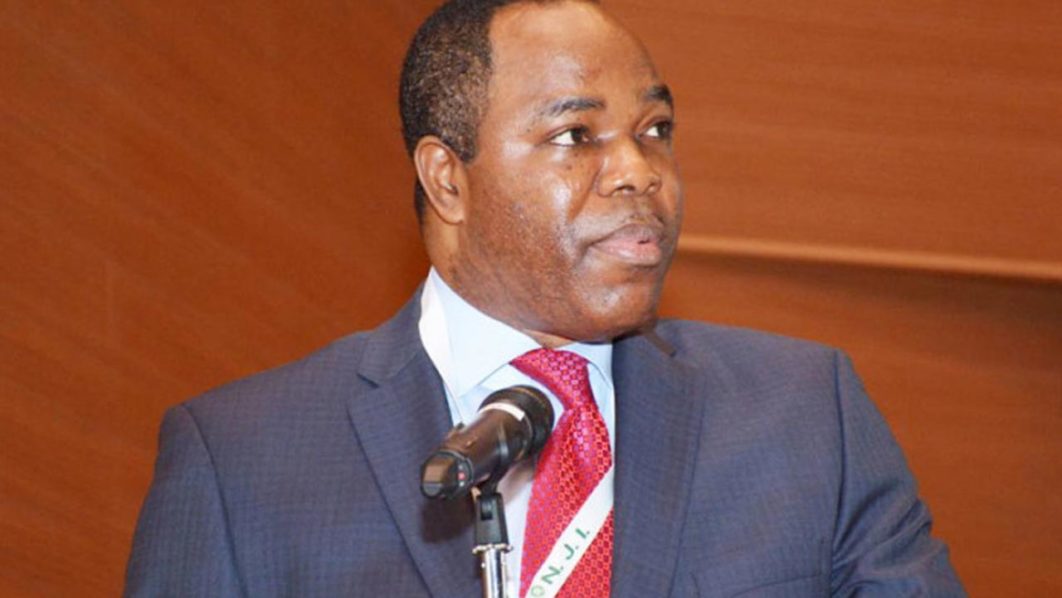...To get all news updates, Join our WhatsApp Group (Click Here)
Also Join our WhatsApp Channel (Click Here)
On the sidelines of the 12th Practical Nigerian Content (PNC) organized by the Nigeria Content Development and Monitoring Board (NCDMB), Mr. George Onafowokan, the Managing Director/CEO of Coleman Technical Industries Limited, a leading Nigerian brand manufacturer of wires and cables, shared secrets to his business success amid recent national and global economic challenges. Onafowokan maintains that as a Nigerian, one can start a small business and grow organically into a big global competitor…..
What do you mean when you said Coleman Wires and Cable’s story is one of “grass to grace”?
Coleman Wires and Cable was registered as a company in 1975, but we began as a small-scale business in 1996. In 2021, we had to restructure our operations to overcome the setbacks we faced from the beginning, and that’s when I became the Managing Director.
Our story is one of grassroots to grace. Through investing time and effort over the years, we were able to systematically grow from a micro-small company into a small, medium, large, and extremely large company in terms of size. Our business vision started small, but we strategically expanded it. Please note, our aim was not to become the largest company, but it began with the goal of being the preferred wires and cable choice for Nigerians in terms of quality.
Subsequently. we found that every Nigerian preferred locally made cables over the foreign imported ones. So, the question of why we can’t build a company capable of servicing the entire nation and the global market arose; with this, our vision expanded. We progressed from a humble factory to a ripple plant that became the largest in West Africa at the time it was built. Starting out from 20,000 square meters, we expanded to 30,000 square meters and further into the Shagamu plant, which began with over 100,000 and has grown to over 350,000 square meters today.
We diversified into other products, such as high-voltage cables, and we became the first in the country and in West Africa. This achievement made Nigeria the fifth country in the world to produce such cables. Today, more than fifty percent of Coleman’s products are not produced by any other company in Nigeria, West Africa, and most parts of sub-Saharan Africa. This accomplishment is a testament to the story developed by a predominantly 99 percent Nigerian team. It illustrates that it is possible to be Nigerian and organically grow into a global competitor.
Could you provide some insight into your personal background for the readers?
Certainly! I am George Onafowokan, the second generation of the Onafowokan family, born into the distinguished lineage of Asiwaju Solomon Kayode Onafowokan. He is currently the second Asiwaju of Remo, succeeding Chief Obafemi Awolowo, and is well-regarded as a business mogul. Personally, I am a family man with a spouse and children.
I pursued my first degree in Accounting and Finance in the UK, followed by a postgraduate degree in Information and Management. With a penchant for improving processes and a dedication to giving back, I often find myself engrossed in thoughts on how to enhance various aspects of life.
Having witnessed the success of companies I’ve mentored in Nigeria, I am committed to building the capacity of individuals and small to medium-scale businesses. My guiding principle, which I consider my calling, is to contribute to the growth and improvement of others over time.
Reflecting on my upbringing, my father’s journey serves as a true “grass to grace” story. From humble beginnings in a one-bedroom apartment, he worked his way up to become well-educated and stand out among his peers. However, my perspective evolved when, at the age of twelve, my aunt imparted valuable advice. She encouraged me to cease complaining and adopt the mindset that my parents served as vessels for me to enter the world. Once in the world, their responsibility concluded. Embracing this philosophy, I no longer felt entitled to my parents’ resources and committed to earning everything I needed. This mentality shaped my life principle—I don’t expect anyone to owe me anything. Consequently, I work diligently, understanding that neither a “yes” nor a “no” signifies offense or entitlement.
Was Coleman Wires and Cables your first business?
No, Coleman was not my first business; it is a family business. I started my own business when I was young. At the age of sixteen, I ventured into my first wine business. By the time I completed university, I had my own business in the UK, specializing in financing and exporting to Nigeria using containers. My initial entry into the cable business involved supplying raw materials, and coincidentally, one of my main clients was Coleman.
You spoke about replicating yourself; how can one access mentorship opportunities from you?
I am one of those who don’t believe that you can run a business as a one-man show. Therefore, you have to build human capacity in every way, integrate it into your structure, empower the people around you, and let them handle their responsibilities. Personally, I have built a team around what I do. I started in a business where I handled every department myself, but today, I am not involved in those tasks anymore.
Most importantly, I empower them to effectively perform their jobs and give them a sense of belonging, so they feel that their contributions have value.
In many companies in Nigeria, you often find that the Managing Director or CEOs are the only individuals making decisions, while the rest are mere yes-ma or yes-sir. I wouldn’t run a business that way.
Are there mentorship opportunities for people outside your current team?
No, we have not fully structured it for everyone; we currently have a limited number, mostly for individuals already in the industry. However, from my work with the LCCI mentoring group and my team, I have found that what most people generally need is a simple understanding and mentoring to discover what aspects of their life or history they could improve upon or learn from.
What has Coleman been doing with the NCDMB?
For us, we are a success story of the Nigeria Content Development and Monitoring Board (NCDMB) because we have been working with the board since 2017. Prior to that, in 2008, I met with Senator Lee Maeba, who led the private bill for the local content law before it became an act in 2010. I could see the passion in the man when he talked about the whole idea, and from that passion, we took action. “Taking action” means we started putting our money where our mouth is, began examining areas in the law that affect business and expanding capacity, and we have succeeded in doing so. Over the years, it has been challenging to break into these oil and gas companies, but we have managed to do so. We primarily supply cables to their vendors, without handling any installation. We supply for NLNG projects, Shell, and Mobile. We have been able to provide cables that have never been produced by any other company in Nigeria.
In the face of business and economic setbacks, Coleman expanded. What did you do differently?
First, I think we took a strategic position to ensure our ability to continue operations. Second, we minimized our losses and restructured our capacity. One month before the Covid-19 shutdown, we had submitted a request for restructuring with our banks. We had slowed down, scrutinized all our positions, and had already started reducing the size of our business. By the time we entered the Covid-19 pandemic, we operated with the same number of staff for about a year. After Covid-19 started easing, we increased the number of staff. Therefore, we were somewhat prepared for Covid-19, and over the years in our business, we had already trained specific capacity. During Covid-19, we were able to build two factories without anyone coming from abroad. Covid-19 has, in a way, compelled everyone to enhance their in-country capacity.
In your panel discussion, you mentioned that the NCDMB should replicate the success in the petroleum industry in manufacturing. So, in concrete terms, what are you looking for to happen?
Replicating success in manufacturing means being intentional with manufacturers, ensuring that they perform well because there are not a lot of manufacturers. We need to be more deliberate, encourage more factories, open more businesses here, and manufacture goods instead of just assembling them. That is the focus I am emphasizing. There should be a deliberate action to build local capacity.
What is the future for Coleman?
The future for Coleman is still very bright. The opportunities have not stopped. We have two or three projects that are still ongoing, which will be finished by the first quarter of next year. The copper and aluminum factories are underway, the fiber-2 project, the expansion and completion of the Shagamu project, and our power project to increase our capacity from 16 to 24 megawatts. We are also looking to supply around West and Central Africa going forward in the next year, and later on, in East Africa. Our export plan is quite extensive, and we hope to see significant figures coming out of it, apart from Nigeria.
I believe we need to trust in the opportunities that abound in Nigeria, and in time, we are all going to reap the benefits. Regardless of the situation, Nigeria still finds its way to continue growing; and if given peace and the chance by the government, we would most likely see an upward swing in businesses by 2025.
You can get every of our news as soon as they drop on WhatsApp ...To get all news updates, Join our WhatsApp Group (Click Here)
Also Join our WhatsApp Channel (Click Here)












